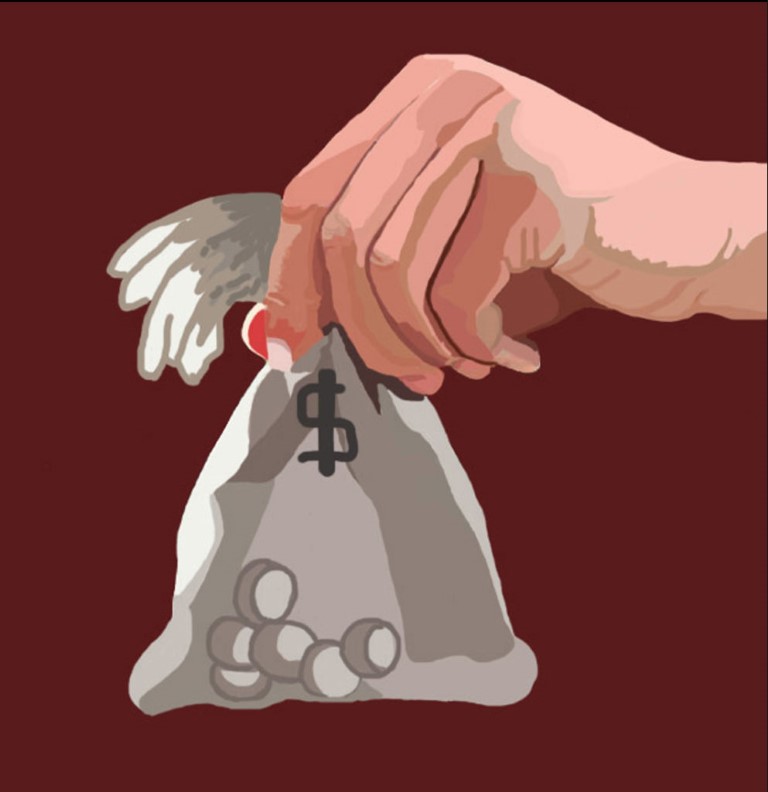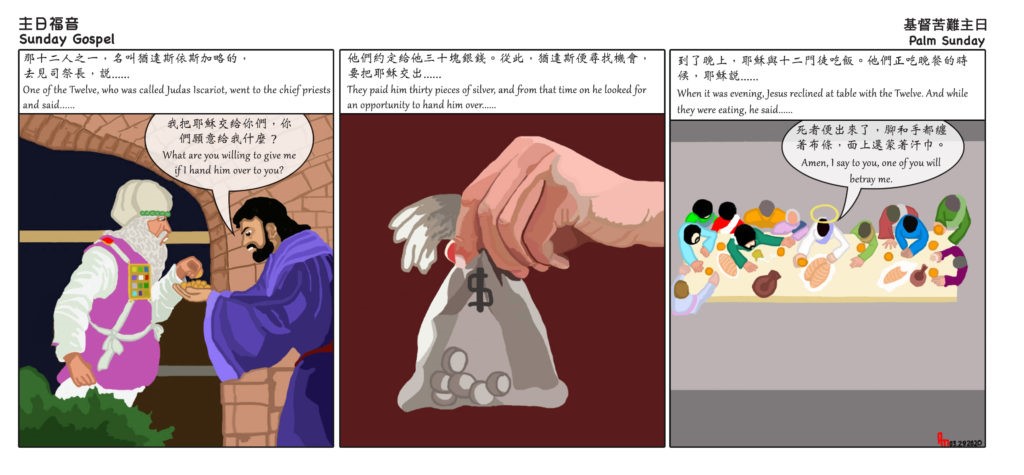Matthew 26:14–27:66
– Fr. Fernando Armellini SCJ
Claretian Publications Macau
It may be difficult for us to understand why God did not save His son from His death. It is even difficult to accept that “unless a grain of wheat falls to the earth and dies, it remains alone; but if it dies, it produces much fruit” (Jn 12:24). In Jesus’ suffering and death, God has made known to us that He does not overcome evil by hindering it but by taking away its power to harm, even making it a time of growth. We may recall the words of Jesus to Peter, who tried to defend him with a sword: “Put your sword back into its place, for all who take hold of the sword will die by the sword” (Mt 26:52). The biblical scholar Origen echoed this when he wrote: “We Christians no longer grip the sword; we don’t anymore learn the art of war because through Jesus we have become children of peace.”
One of the issues close to Matthew’s heart is universalism – that all people will be saved. Unfortunately, Israel rejected Jesus’ invitation for salvation. The maximum expression of this refusal is the cry: “His blood be on us and on our children” (Mt 27:25). The Jews had chosen violence and rejected the reign of peace announced by Jesus. The evangelist wants to warn of the danger of repeating the same mistake. Recalling the regrettable life of Judas, when he saw the only one who loved him succumb to his death, he must have felt terribly alone to carry the weight of his mistake. He’s gone, unfortunately, to vent his remorse, his inner torment to the wrong people, the temple priests who used him. If he had turned to Christ, his life would end in another way.
Finally, only Matthew speaks of the guards placed in custody of the tomb (Mt 27:62-66): they are a sign of the triumph of evil. Their presence testifies that the righteous is defeated, the deliverer silenced, locked forever in a tomb. It is the experience that we have: evil always gives the impression of being assured of a final triumph, such as to consider as dreams the poor, the weak and the defenseless’ hope for justice. God, however, ensures his unexpected intervention. His angel will roll every stone that prevents the return to life and will sit on it (Mt 28:2). The soldiers, placed to defend injustice and iniquity, will flee in terror from his light (Mt 28:4).



 Follow
Follow


